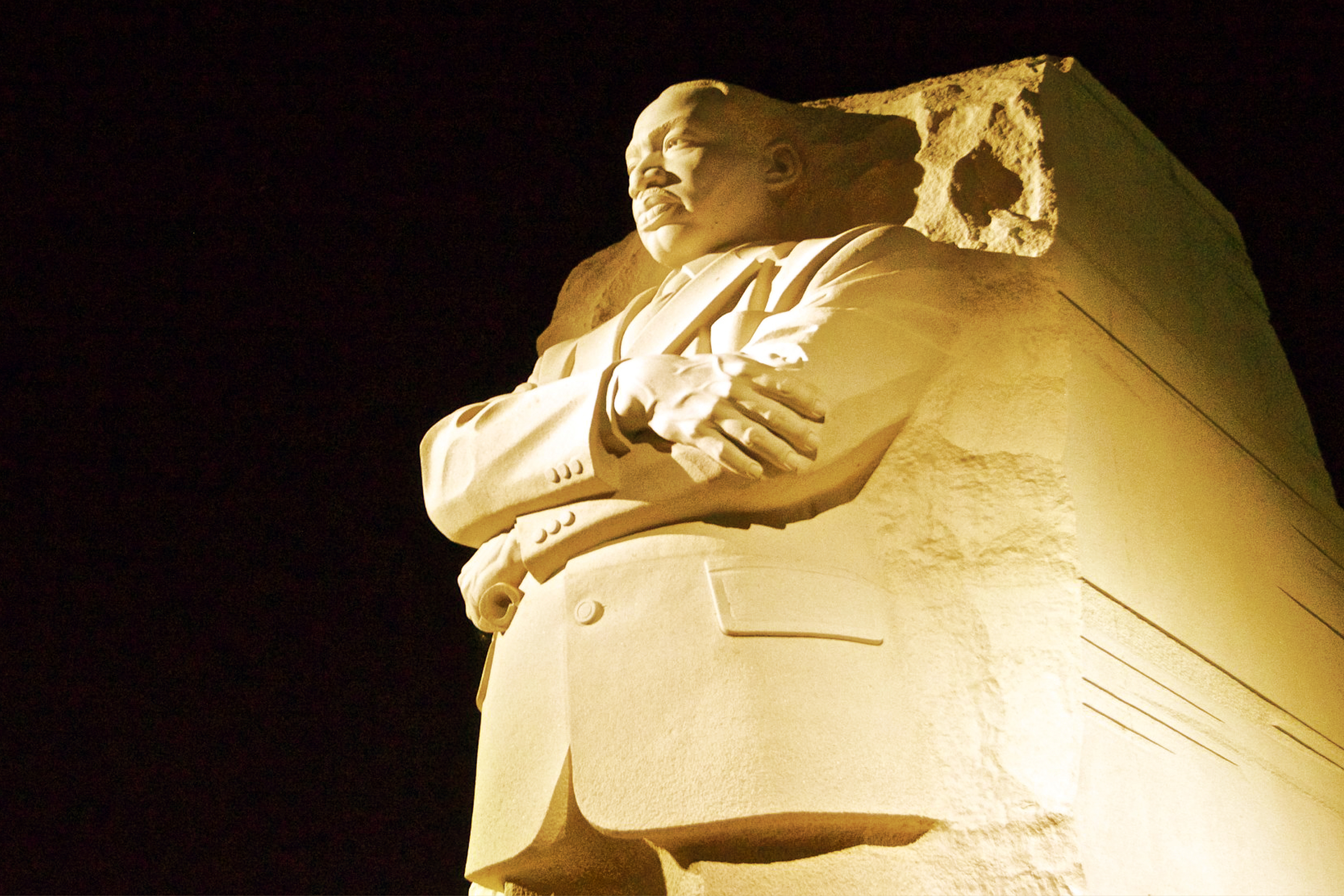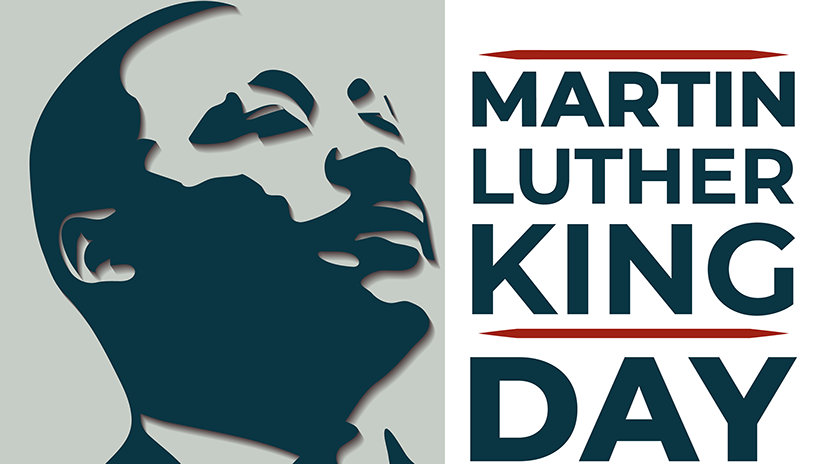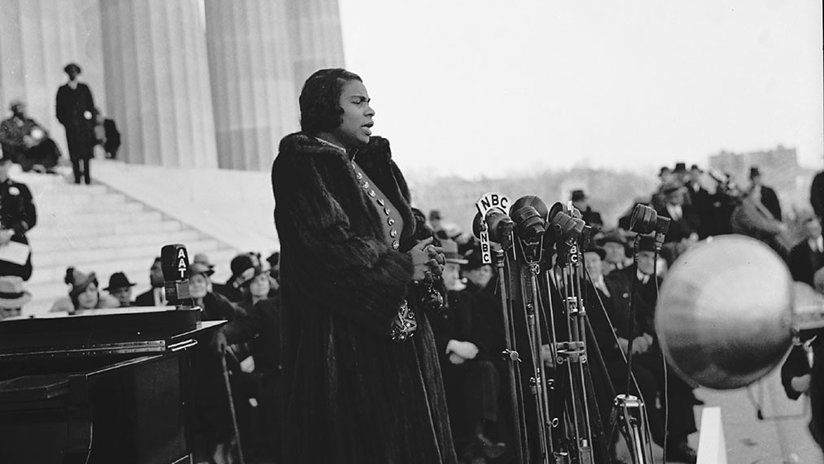
-
HOME
-
WHAT IS STANDOur Mission Our Values Our Help Contact
-
WHAT WE FIGHT FORReligious Freedom Religious Literacy Equality & Human Rights Inclusion & Respect Free Speech Responsible Journalism Corporate Accountability
-
RESOURCESExpert Studies Landmark Decisions White Papers FAQs David Miscavige Religious Freedom Resource Center Freedom of Religion & Human Rights Topic Index Priest-Penitent Privilege Islamophobia
-
HATE MONITORBiased Media Propagandists Hatemongers False Experts Hate Monitor Blog
-
NEWSROOMNews Media Watch Videos Blog
-
TAKE ACTIONCombat Hate & Discrimination Champion Freedom of Religion Demand Accountability
We Embrace Dr. Martin Luther King, Jr. Today, But Would He Embrace Us?
Martin Luther King, Jr. Day is unique among our national holidays because, unlike the others, it commemorates an individual whose living voice has been preserved, whose movements have been recorded on film and whose forebears were treated as property and not as human beings.

Washington’s victories, Lincoln’s soaring speeches and even a few of Columbus’ journals have all come down to us, but even now, generations after his passing, we see Dr. King smile, laugh, reflect. We hear him speak, his voice rising with passion or lowering almost to a whisper with the quietude of faith. We perceive him—not as a statue or a photo in a history book—but as a living, breathing person, like ourselves.
He is, therefore—unlike our other holiday icons—ours.
A lifetime has already passed since that 1963 speech, and we, at the end of that passage of time, still live in a country made dangerous by hate.
And, if a recent Pew Survey is any indication, we embrace him. Eighty-one percent of us say that Dr. King had a positive influence on America, and 52 percent of us believe that there has been a “great deal or a fair amount of progress” towards racial equality since Dr. King’s “I Have a Dream” speech over 60 years ago.
Moreover, Dr. King would agree with the majority of us that efforts to achieve racial and ethnic equality have not gone far enough, and he might even agree with a majority of that majority that full racial equality in their lifetime is unlikely.
A lifetime has already passed since that 1963 speech, and we, at the end of that passage of time, still live in a country made dangerous by hate. Race riots, though not as ubiquitous as they were in Dr. King’s time, still break out, but our latest plague is mass shootings—at schools, nightclubs, synagogues, shopping malls, supermarkets, public gatherings—prompted by hatred of this group or that group, this race or that race, this religion or that religion.
Yes, we embrace Dr. King, but would he embrace us?
He already had his doubts about the ability of human beings to change and to accept love over hate. These doubts found public expression in one of his first sermons as a young minister in 1954:
“The first principle of value that we need to rediscover is this—that all reality hinges on moral foundations. In other words, that this is a moral universe, and that there are moral laws of the universe, just as abiding as the physical laws. I’m not so sure we all believe that. We never doubt that there are physical laws of the universe that we must obey. We never doubt that. … And so we just don’t jump out of airplanes or jump off of high buildings for the fun of it—we don’t do that. Because we unconsciously know that there is a final law of gravitation, and if you disobey it you’ll suffer the consequences—we know that. Even if we don’t know it in its Newtonian formulation, we know it intuitively, and so we just don’t jump off the highest building in Detroit for the fun of it—we don’t do that. Because we know that there is a law of gravitation which is final in the universe. If we disobey it, we’ll suffer the consequences. But I’m not so sure if we know that there are moral laws, just as abiding as the physical law. I’m not so sure about that. I’m not so sure we really believe that there is a law of love in this universe and that if you disobey it, you’ll suffer the consequences. I’m not so sure if we really believe that.”
Five times in one paragraph, the 24-year-old Reverend King, a man of towering faith, utters the phrase, “I’m not so sure.”
Suppose, by some trick or time warp, he was to travel three score and ten years into the future—from 1954 to 2024—and be afforded a glimpse of swastika-wielding, slogan-screaming skinheads marching down a Charlottesville Street; or an elderly Black man beaten outside his San Francisco home; or bullies tearing a head-covering off a terrified Muslim second-grader in New York City—all spawned by hate?
What would Dr. King say? Would he now be convinced that we don’t believe that there’s a law of love in this universe, after all?
Would he feel that the task of trying to bend the long arc of that universe toward justice—as he was so fond of saying—was fruitless? Would he feel that seeking to change the hearts of individuals, groups and the world was thankless and doomed to failure in the end?
Dr. King himself gave us the answer to that question scant weeks before his death: “I’m honest enough to see the gone-wrongness of human nature,” he said. But, he added, “I happen to be a Baptist preacher and that puts me in the heart-changing business.”









